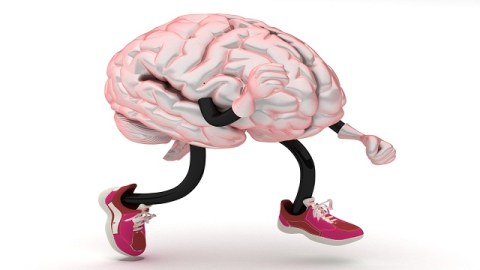Digital “Brain Health” Market Predicted to Boom

Have you gotten a measure of your attention skills on a site like Lumosity? Has a physician recommended that your elderly parent give software like BrainHQ a try? Did you get an online assessment before a military deployment? Then you are already part of the booming Digital Brain Health market — a market, according to SharpBrains, a leading market research firm, that will grow to $1 Billion by the end of this year, and likely to $6 Billion by 2020.
Given the fact that so many of these brain health applications and websites are new, only up and running in the past few years, the number is quite staggering. That’s a lot of growth in a pretty little amount of time.
Alvaro Fernandez, CEO of SharpBrains, says that such growth is not surprising. In a new report entitled, The State of the Digital Brain Health Market 2012-2020 – Transforming Health with Digital Tools to Assess, Monitor, and Enhance Cognition across the Lifespan, Fernandez and his team looked closely at all aspects of the brain health space. He told me, “The reason this market is growing so quickly is that people are very interested in enhancing their own brain health–at every age. They understand that the brain is an asset that they need to protect and keep healthy as long as possible,” he says. “But one of the main drivers in this is definitely the aging population who want to stay independent as long as they can.”
Fair enough. That makes sense.
But while Fernandez says he isn’t surprised by the projected revenue growth, I am. Especially since there’s still quite a bit of controversy regarding whether brain training sites and applications, a key segment of the brain health market, actually work. That is, whether or not those games that supposedly challenge your memory and other cognitive skills on the computer, actually transfer to the real world. Just because you ace a memory quiz online doesn’t necessarily mean you’ll stop losing your car keys. And the scientific community remains at odds about whether brain training is a viable method of improving cognitive outcomes.
When I asked Fernandez about the controversy, he was candid. First, he wanted to clarify that “brain health” was not limited to brain training sites. There was a lot more to the market than that.
“There are digital assessments that can automate a lot of the work that was, until now, done by a neuropsychologist or therapist,” he told me. SharpBrains considers software designed to “monitor, assess, enhance or repair neurocognitive functions,” as part of the mix as well as biometric applications. But, yes, he admits, there is a lot of interest in brain training and cognitive enhancement.
So given this explosive growth, what should consumers be looking at before committing to a “brain health” application? Alvaro says that people should approach purchasing brain health application, brain training app or otherwise, the same way they would the purchase a car or washing machine: with careful, upfront research.
“Type up a list of your needs. Look at what’s out there, look at your budget. And then use all of that to make an informed decision,” he says. “People need to pay a lot of attention to this. The market is growing and there are many different tools to choose from, many different tools that they may benefit from. So making an informed decision is important.”
In any case, I’ll be curious to see whether SharpBrains’ projections are on target. What do you think? Do you think the market can support such growth? Does scientific research need to keep up?
Photo credit: jimmi/Shutterstock.com





